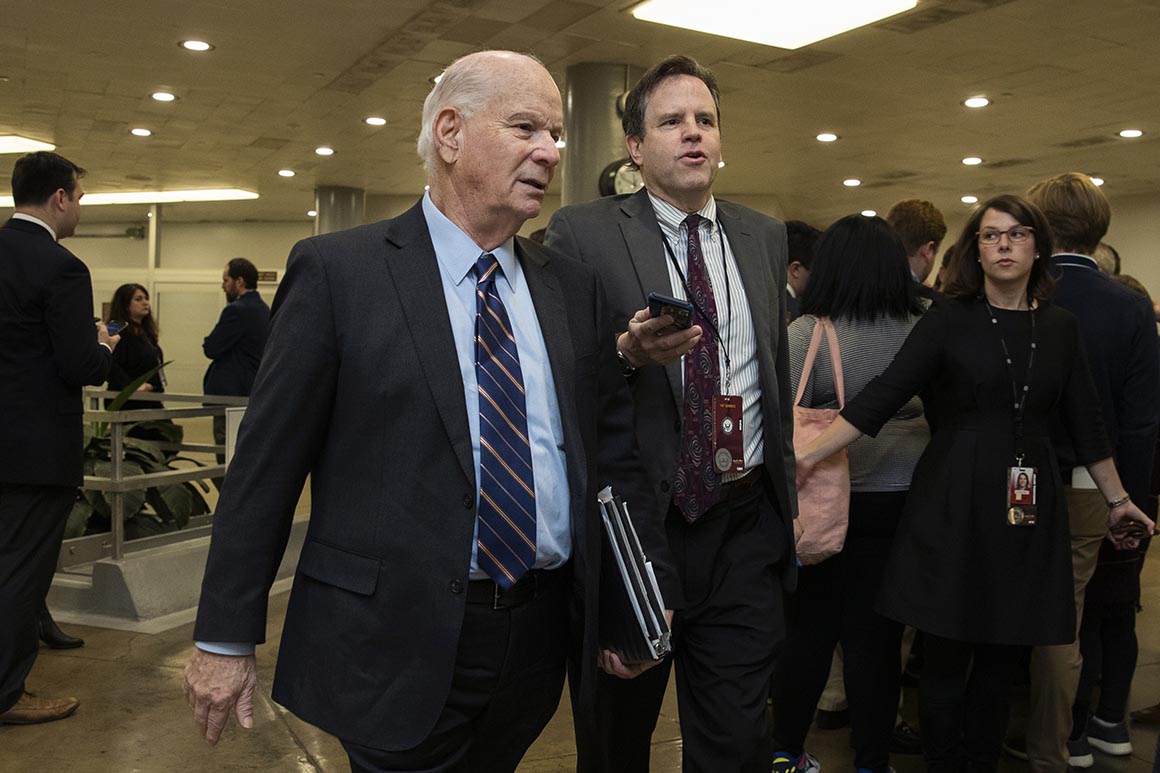
On Monday morning, the House and Senate sergeants-at-arms extended the Capitol’s restricted access posture through May 1, echoing the new national guidelines for social distancing that Trump announced on Sunday after repeatedly suggesting the United States would be open for business by Easter, April 12. All tours will be postponed until at least May and the Capitol and related office buildings are open only for lawmakers, staff, reporters and official business visitors.
Sen. Ben Cardin (D-Md.) said committees will struggle to hold hearings under the current conditions and that noncontroversial business like lower-level nominations can be confirmed without roll-call votes. But he said the Senate may “need to be together in some format by the end of April because I think we might need to enact more legislation.”
“We should just lead by example and show the American people we can recognize that everybody needs to do everything they can to minimize the spread of this disease, including United States senators, and still do their work,” Cardin said in an interview on Monday.
“What we have to do is what every American is doing right now. And that’s taking it one day at a time,” said Sen. Lisa Murkowski (R-Alaska), who presided over an empty Senate chamber during Monday’s pro forma session.
There’s already been bicameral infections, which have raised fears about spreading the virus through the simple act of gathering on the House and Senate floors to vote on legislation and nominations.
In the House, Rep. Nydia Velazquez (D-N.Y.) was the latest member to be diagnosed with coronavirus on Monday, joining Reps. Ben McAdams (D-Utah), Mario Diaz-Balart (R-Fla.), Joe Cunningham (D-S.C.) and Mike Kelly (R-Pa.). Velazquez was present for the House vote Friday and was in close contact with House leaders during a bill signing ceremony afterward.
Pelosi later told her leadership team that the attending physician deemed her interaction with Velazquez “low risk” and no further action was needed, per sources familiar with the call on Monday.
Senate Republican Whip John Thune (R-S.D.) tested negative after experiencing an illness, but he left the Hill immediately after voting late Wednesday night amid his symptoms, underscoring the sensitivities of the situation. Multiple lawmakers also took to self-quarantining after risking exposure to the virus.
Sen. Mike Lee (R-Utah), who self-quarantined earlier this month after Sen. Rand Paul (R-Ky) tested positive, said he assumed the Senate would try and come back by April 20.
„I understand concerns about doing it and yet I think there are also concerns about what would happen if we didn’t. … We can still hold committee hearings and find ways to spread people out,“ Lee said on Monday. „The way the leader has been setting up votes, holding them open for a longer period of time really can allow” the Senate to do its work.
In a sign of how much has changed in just a few weeks, the House took extraordinary precautions during a vote on the coronavirus relief package on Friday. Lawmakers were spaced out throughout the chamber and even in the public galleries above the House floor in order to maintain proper social distancing while voting.
Source: politico.com
See more here: news365.stream






